Devo invaded Long Island on Sunday, October 5, under a near-full moon at the Northwell at Jones Beach Theater, where the band turned a picture-perfect October evening into a pop-cultural sermon; half concert, half art installation, all chaos theory come to life.
The “Spuds” were out in force, red energy domes marking the night like UFO landing lights. There was a strange serenity to it all: the ocean just beyond the stage, the crowd a sea of devo-tion and absurdity. For a band that once declared humanity was devolving, this was proof they might’ve been right—and that it’s never looked, sounded, or felt better.

The night kicked off with Lene Lovich, an eccentric force of her own whose art-rock theatrics felt right at home in Devo’s orbit. Her set was odd, angular, and hypnotic, like a glitch in the timeline that somehow made perfect sense.

The B-52’s followed, all camp and color, but the spark felt dimmer than usual. They hit the notes, but it came off more cruise control than cosmic. Fun, sure, but next to Devo’s precision-engineered madness, it was clear who still held the patent on weird.
Devo didn’t come to reminisce. They came to remind. Their set wasn’t a trip down memory lane; it was a reassertion of purpose. Frontmen Mark Mothersbaugh and Jerry Casale moved with surgical precision, launching into their blend of satire, synth, and punk-fueled absurdism as if no time had passed since their Akron beginnings.
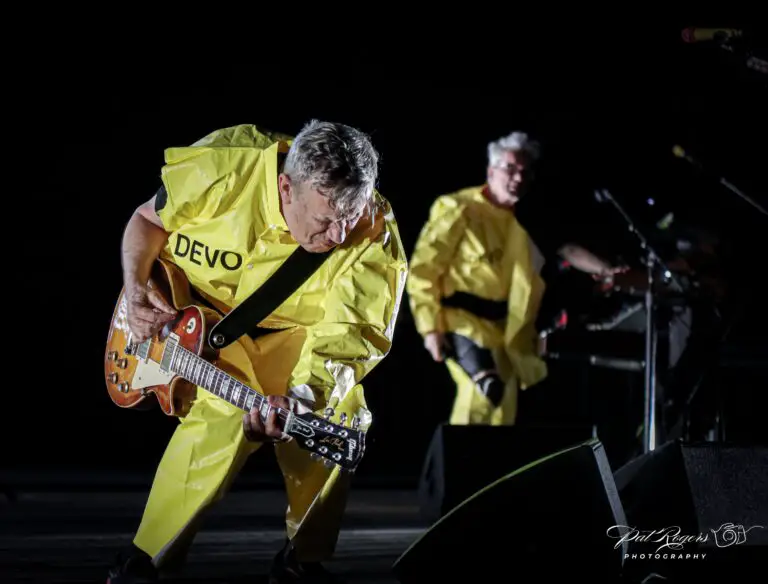
It’s wild to think Devo started as a reaction to tragedy. After the 1970 Kent State shootings, Casale and Mothersbaugh found themselves asking a question that would define their art and philosophy: What if humanity isn’t evolving? What if it’s devolving?
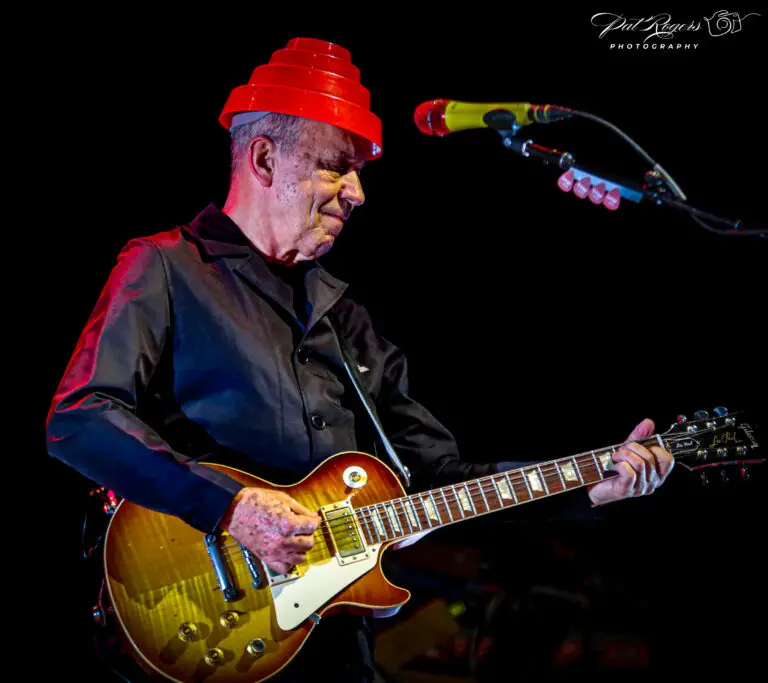
From that moment, the theory of de-evolution was born. It wasn’t as a joke, but rather a mirror held up to a society obsessed with conformity, consumerism, and complacency. And here they were, five decades later, standing on a stage over the Atlantic Ocean, proving that theory still holds water.
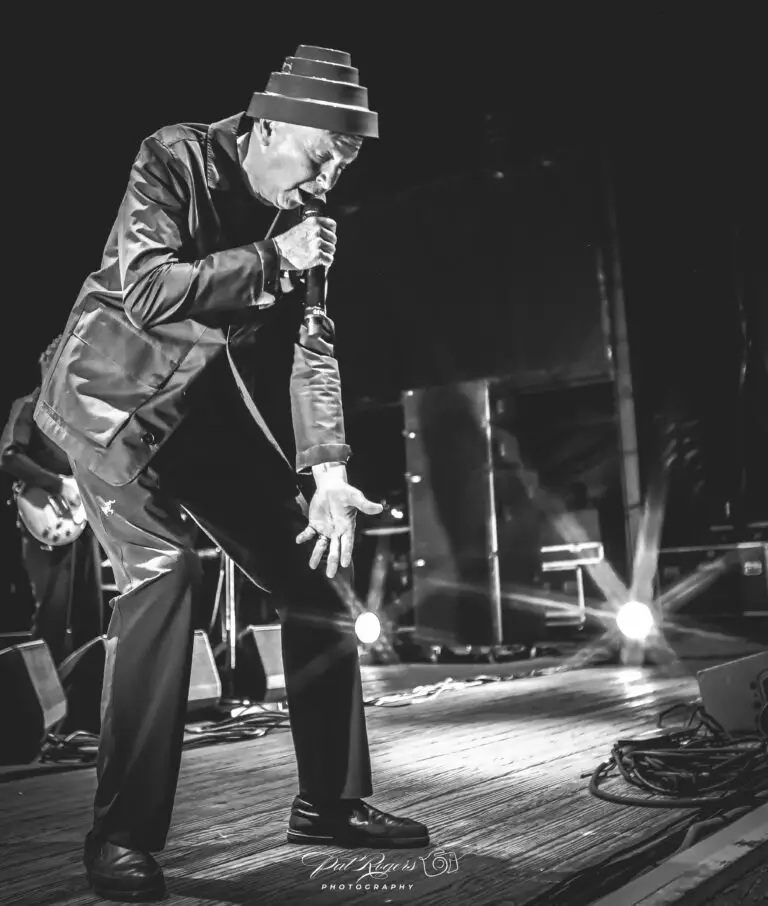
The performance was a guided meditation in controlled chaos: minimal movement, maximum impact. Their sound hasn’t aged; if anything, the world has finally caught up. Those jerky rhythms and robotic beats that once sounded alien now pulse through everything from modern pop to electronic music.
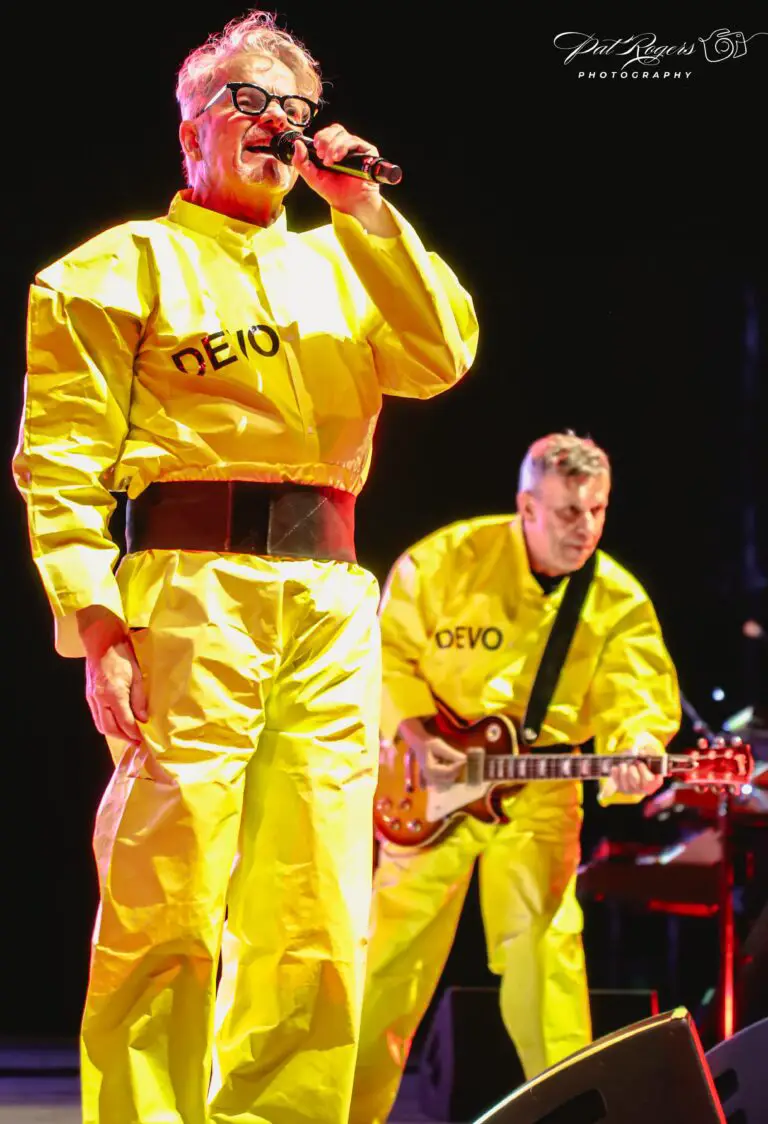
When the opening riff of “Whip It” hit, the crowd lost it. Even if you don’t know Devo, you know that song—the one that became a misunderstood anthem of the early MTV era. On the surface, it’s all pep and punch, a tongue-in-cheek self-help mantra wrapped in latex and irony. At its core, “Whip It” is a critique, a sarcastic shot at the American dream and the idea that you can fix systemic problems by just working harder or smiling wider. Devo always knew that under the neon, there was rot. And yet, they made it sound like salvation.
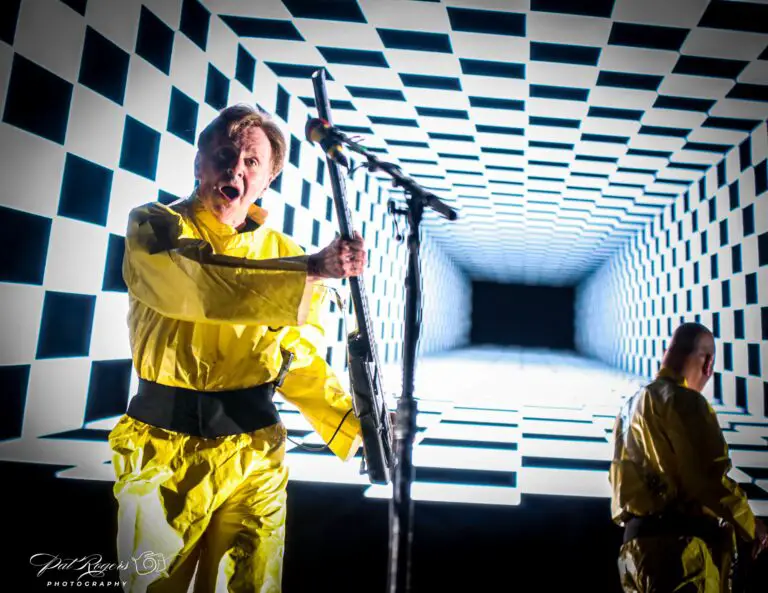
Live, “Whip It” still has that mechanical swagger, that factory-floor precision, but there’s an extra edge now. It’s a wink from a band that knows the joke landed harder than they ever imagined.
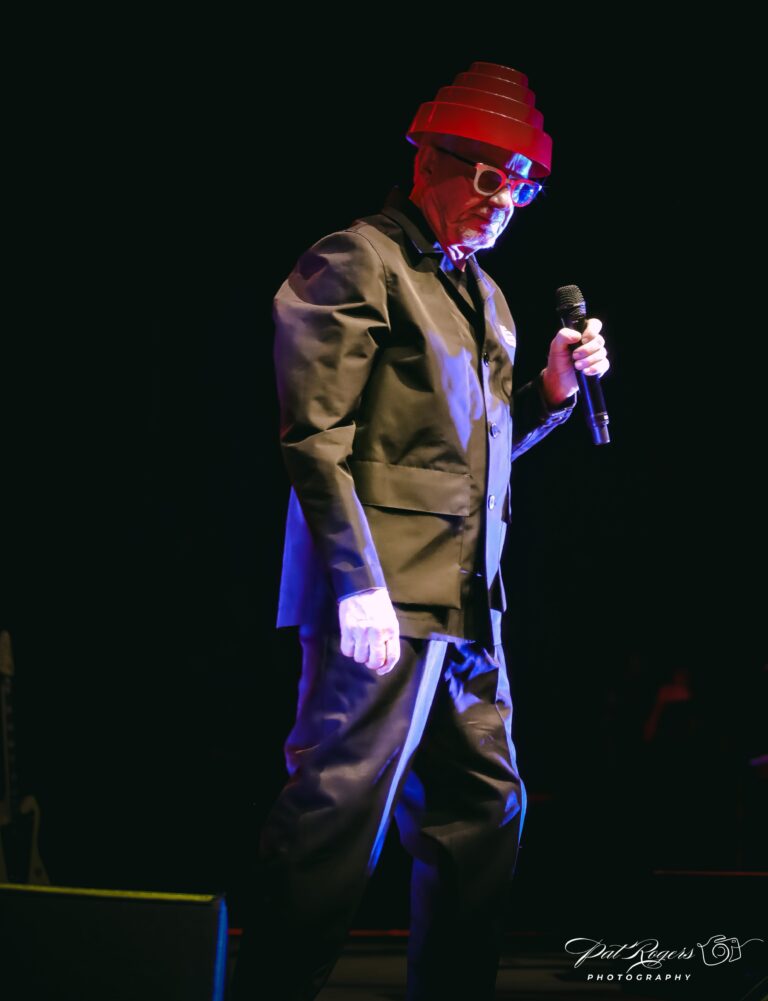
A couple of songs later came “Uncontrollable Urge,” a track that plays like an anxiety attack set to rhythm. It’s primal, twitchy, barely contained; punk rock stripped down to circuitry. Mothersbaugh barked, shouted, and laughed through it, channeling the same nervous energy that’s fueled Devo since day one. It’s not rebellion for rebellion’s sake; it’s rebellion against the illusion of progress. The urge, uncontrollable as ever, is to scream against the static of modern life.
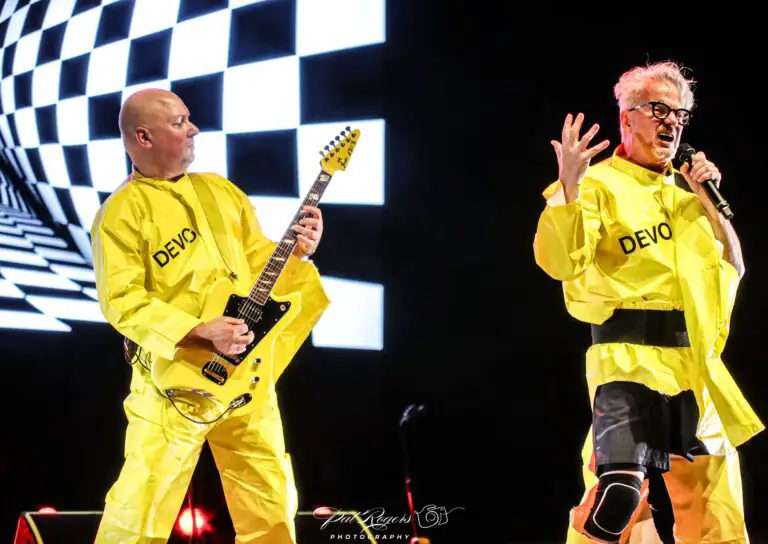
What’s remarkable about Devo in 2025 is how sharp their vision remains. What was once dismissed as a novelty act or art-school prank has proven prophetic. The world has caught up to their warnings: a society glued to screens, personalities flattened into algorithms, politics reduced to performance. Devo predicted all of it, and somehow, they did it while making us dance.
By the time “Freedom of Choice” hit, it felt less like nostalgia and more like revelation. That song, written in 1980, was Devo’s cutting satire on how Americans traded meaningful decisions for meaningless consumer options. “Freedom of choice is what you got; freedom from choice is what you want.” Back then, it was a warning. Live at Jones Beach, it sounded like scripture. The crowd shouted along, maybe half-aware of how close we’ve come to living that lyric in full.
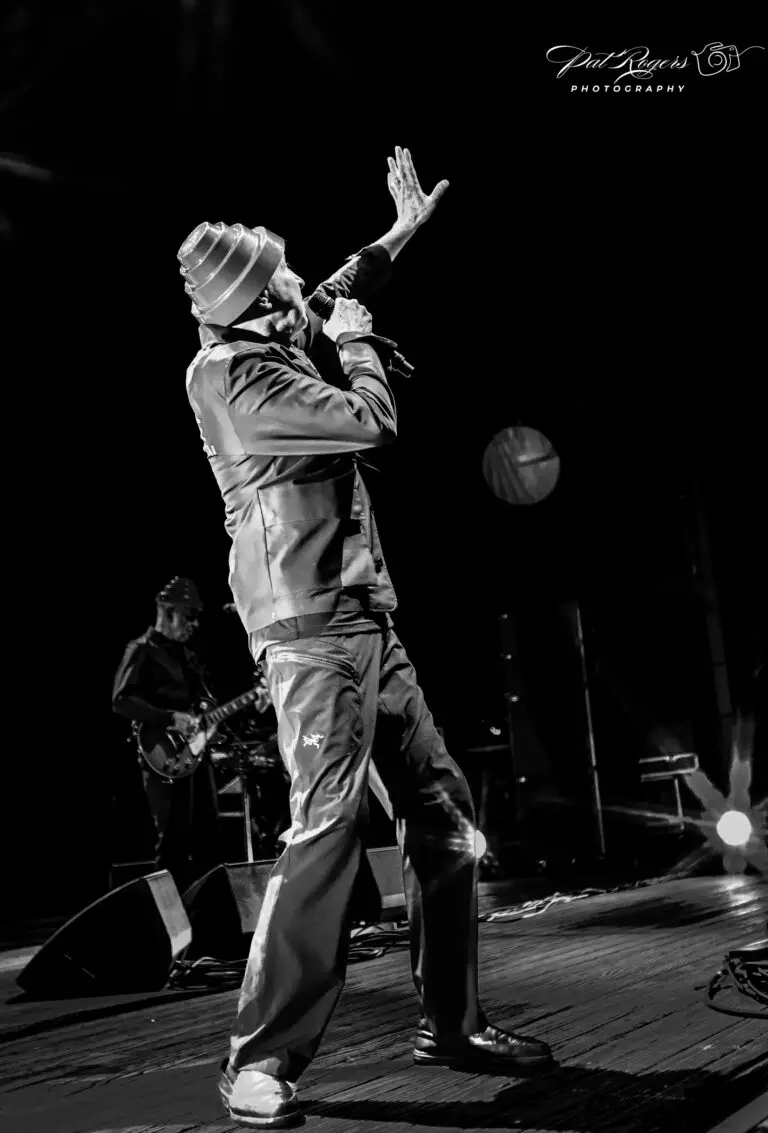
Devo’s genius has always been their ability to disguise philosophy as pop. Beneath the rubber suits and mechanical moves lies a deep understanding of how culture consumes itself. Their humor isn’t goofy, it has a high IQ. It’s absurd by design.

At Jones Beach, that design played out in full spectacle. Visuals flashed behind them—propaganda loops, static, checkerboards—like the ghosts of 20th-century America being broadcast live from the band’s collective subconscious. The sound was tight, flawless, but never sterile. It felt alive in that way only Devo can make music feel: warm, weird, human.

What separates Devo from this current wave of legacy acts cashing in on past glories is simple: They never stopped being relevant. Their songs still sting because the world they warned us about actually arrived. They were the future once; now they’re the present tense of irony.
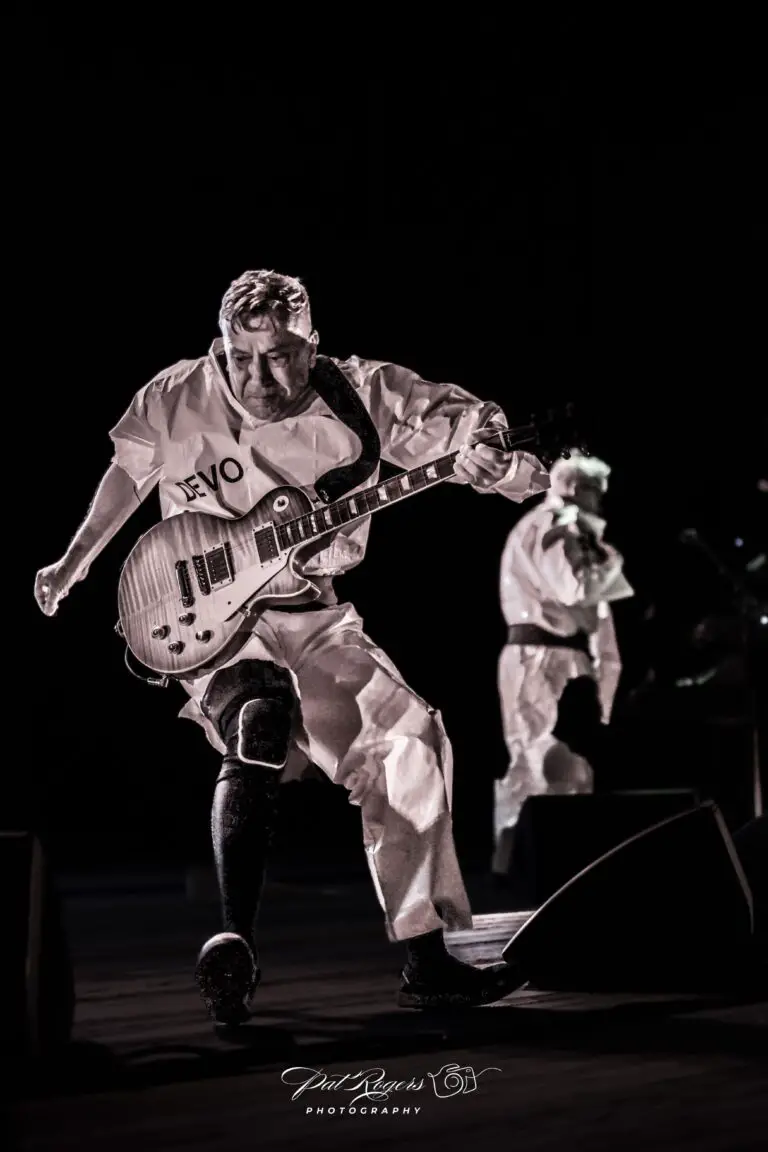
As the show wound down, the ocean shimmered behind the stage, waves gently smacking against the amphitheater’s edge. It was a beautiful world, though as Devo reminded us with a wink and a grin, not for everyone.
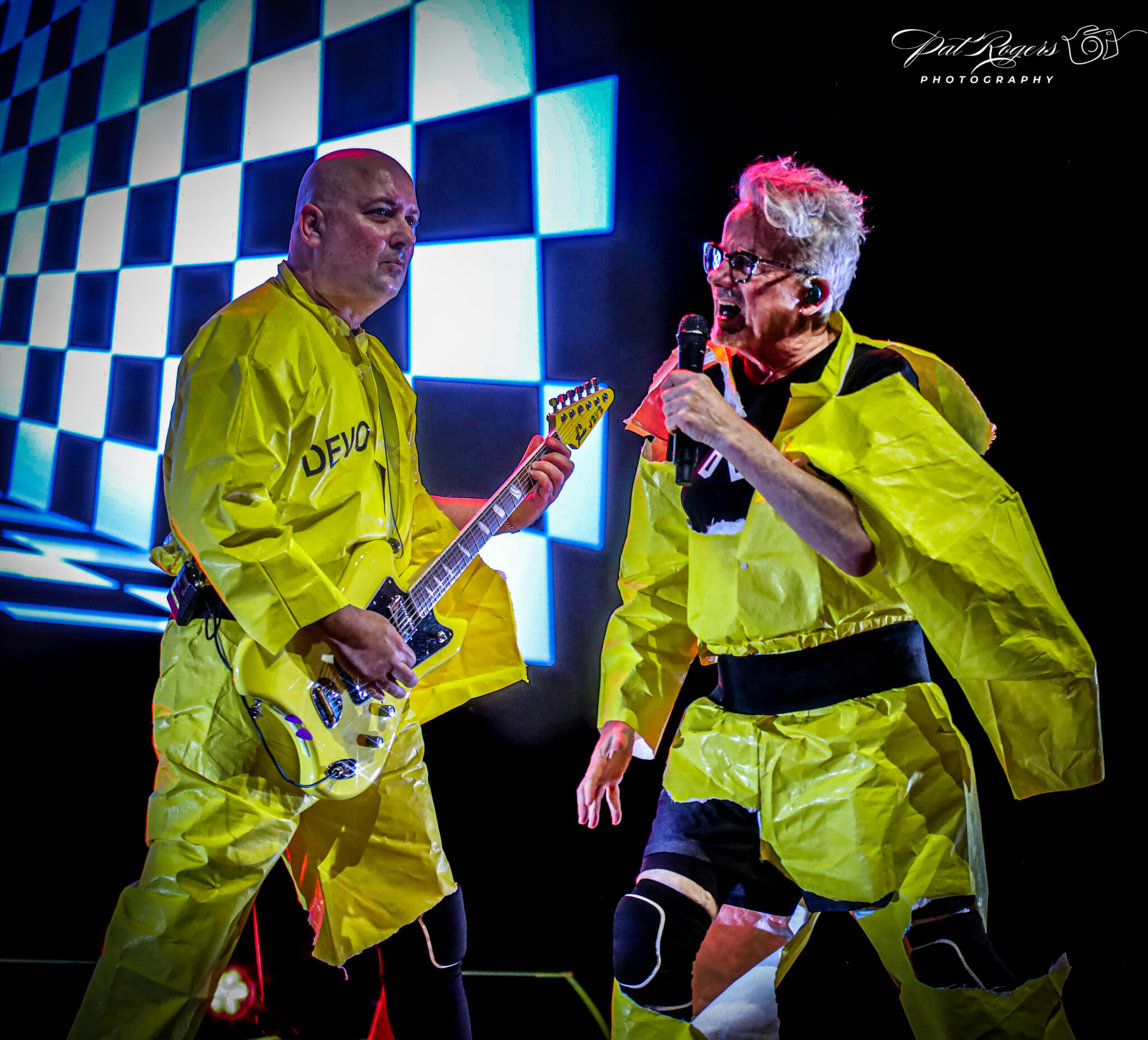
When the lights came up and the crowd roared one last time, it wasn’t applause for a band that helped define new wave. It was gratitude for prophets who dared to make fun of a sort of apocalypse before anyone else saw it coming.
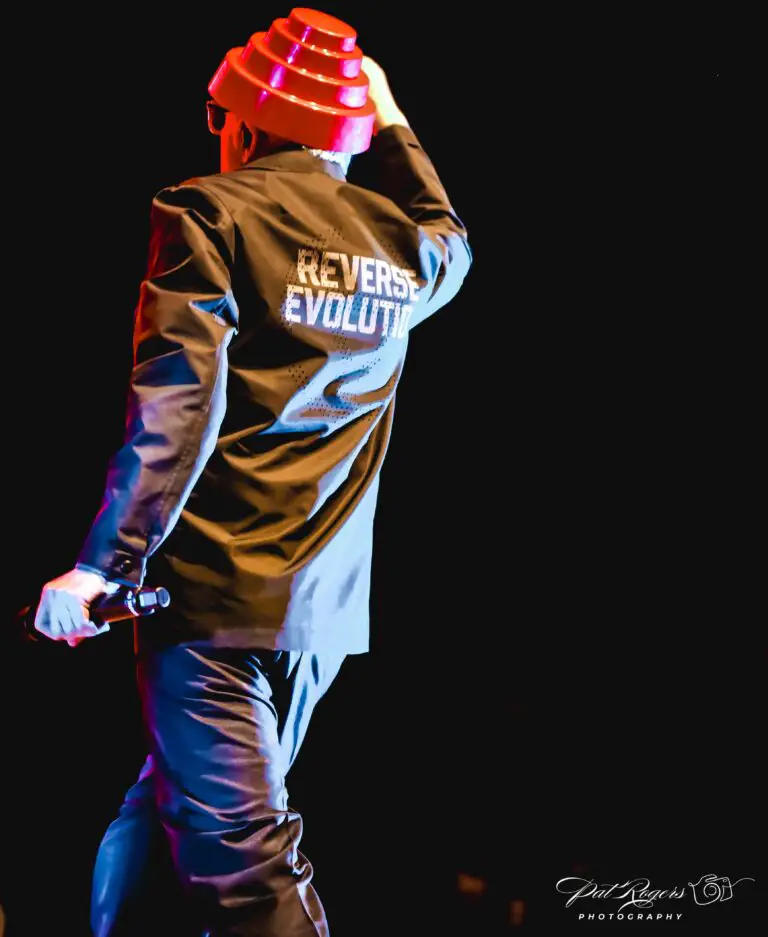
Devo didn’t play a concert at Jones Beach. They held up a mirror under that Long Island moon, and what stared back was a crowd of willing participants in the grand experiment of de-evolution who were smiling, sweating, and dancing as the world continues to spin backwards.
Setlist: Don’t Shoot, Peek A Boo, Going Under, That’s Good, Girl You Want, Whip It, Planet Earth, Uncontrollable Urge, Blockhead, Mongoloid, Jocko Homo, Smart Patrol/Mr DNA, Gates, Freedom Of Choice, Beautiful World


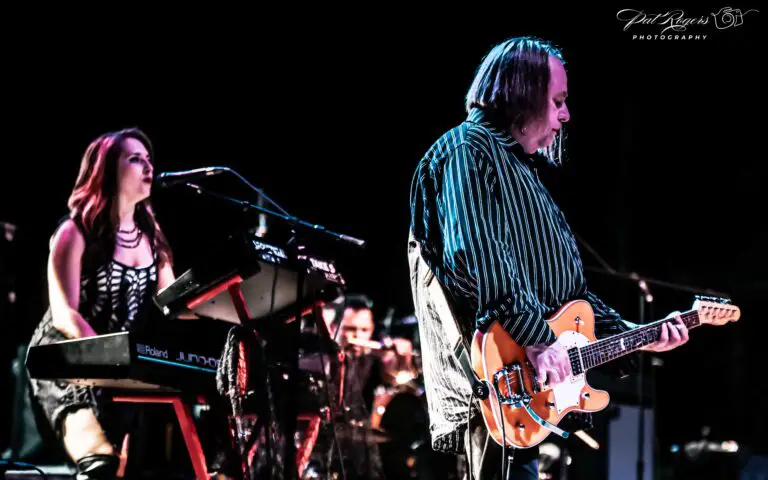




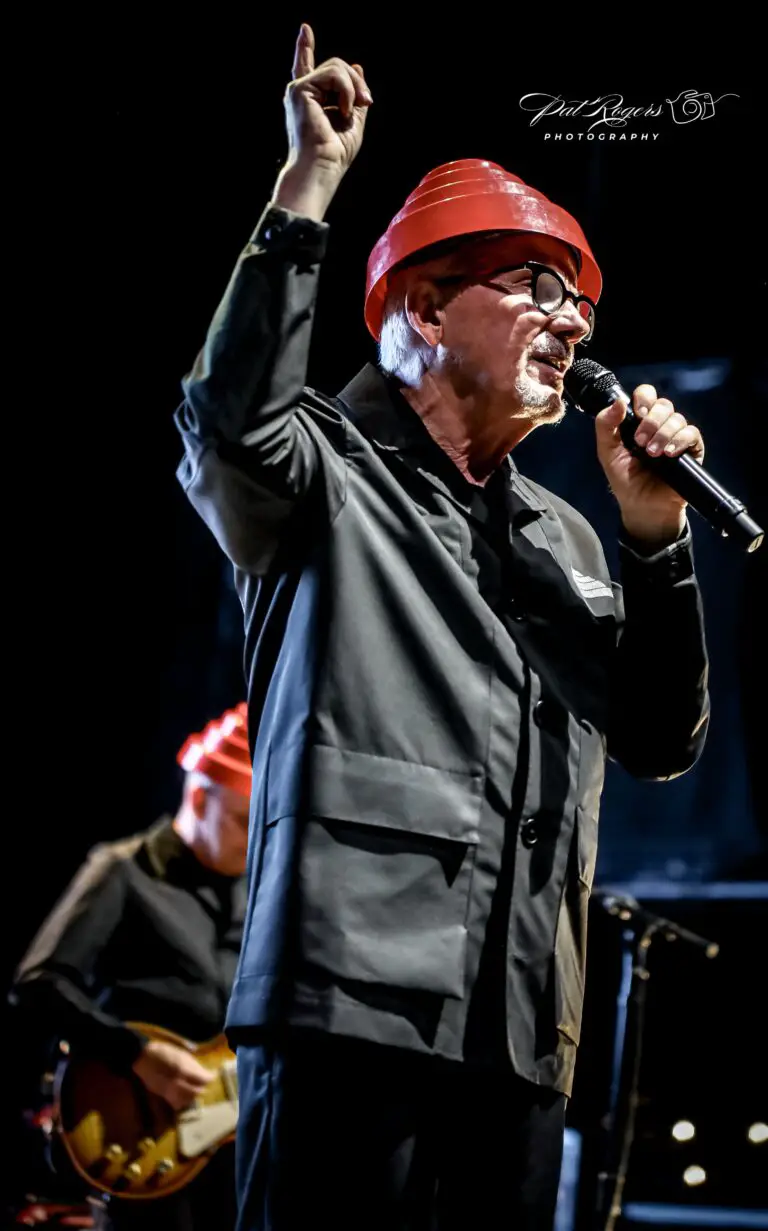








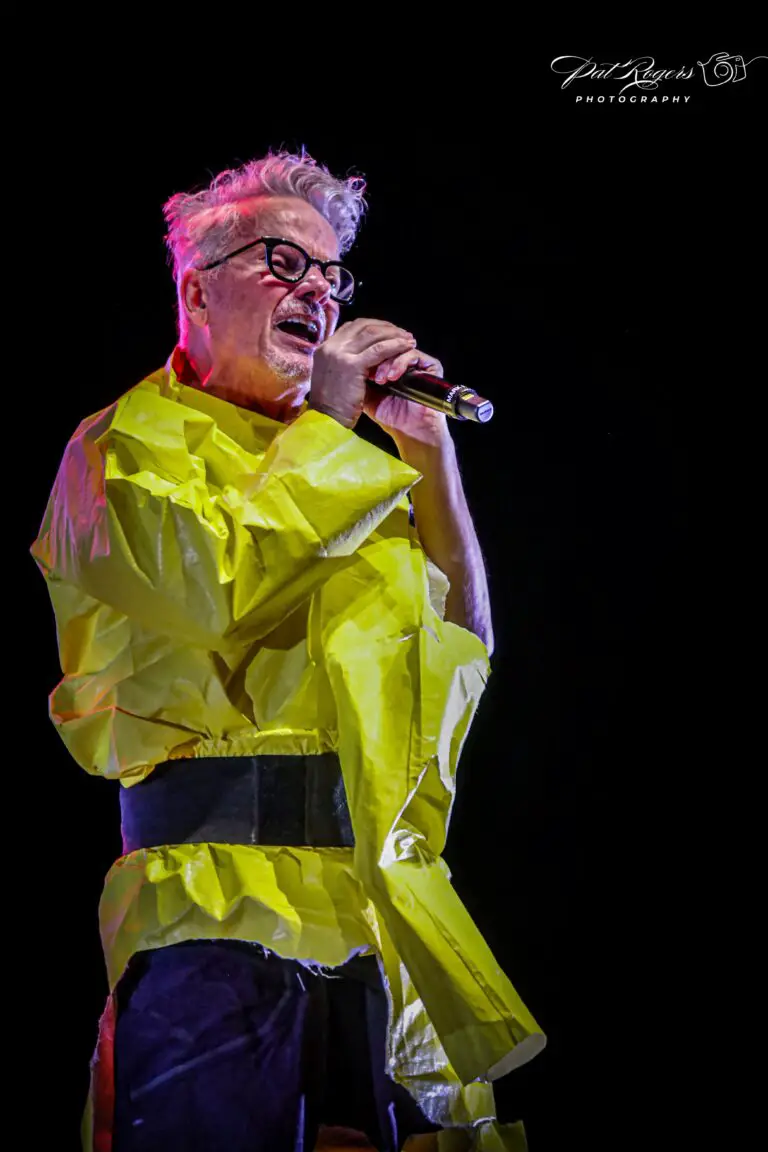


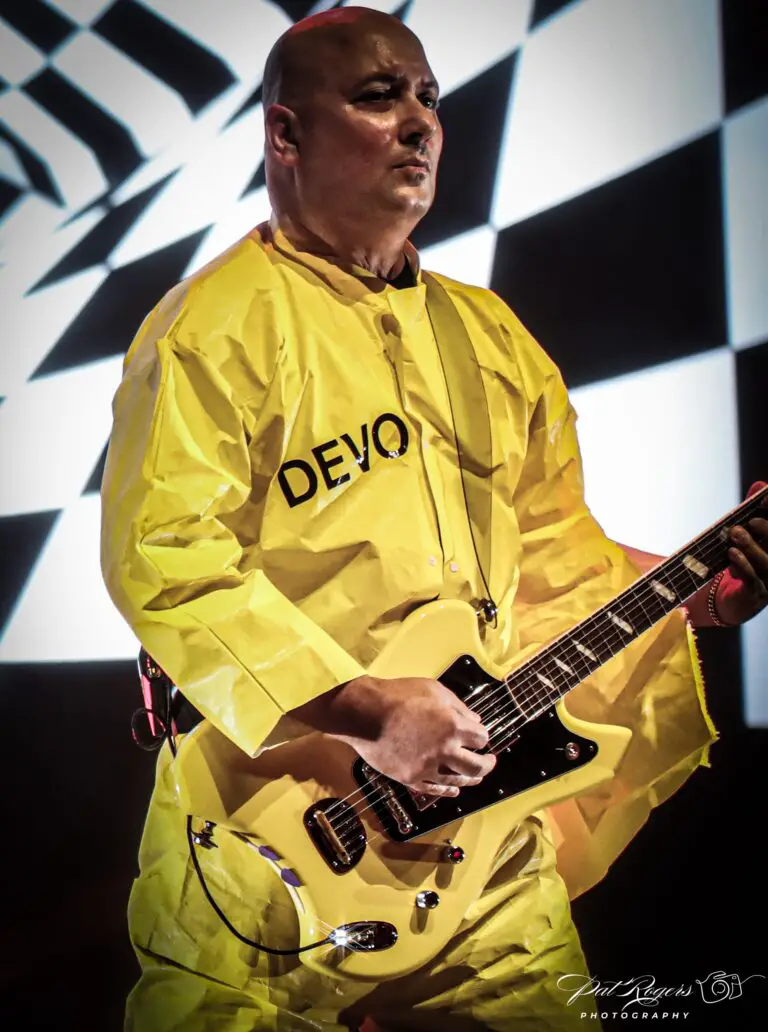

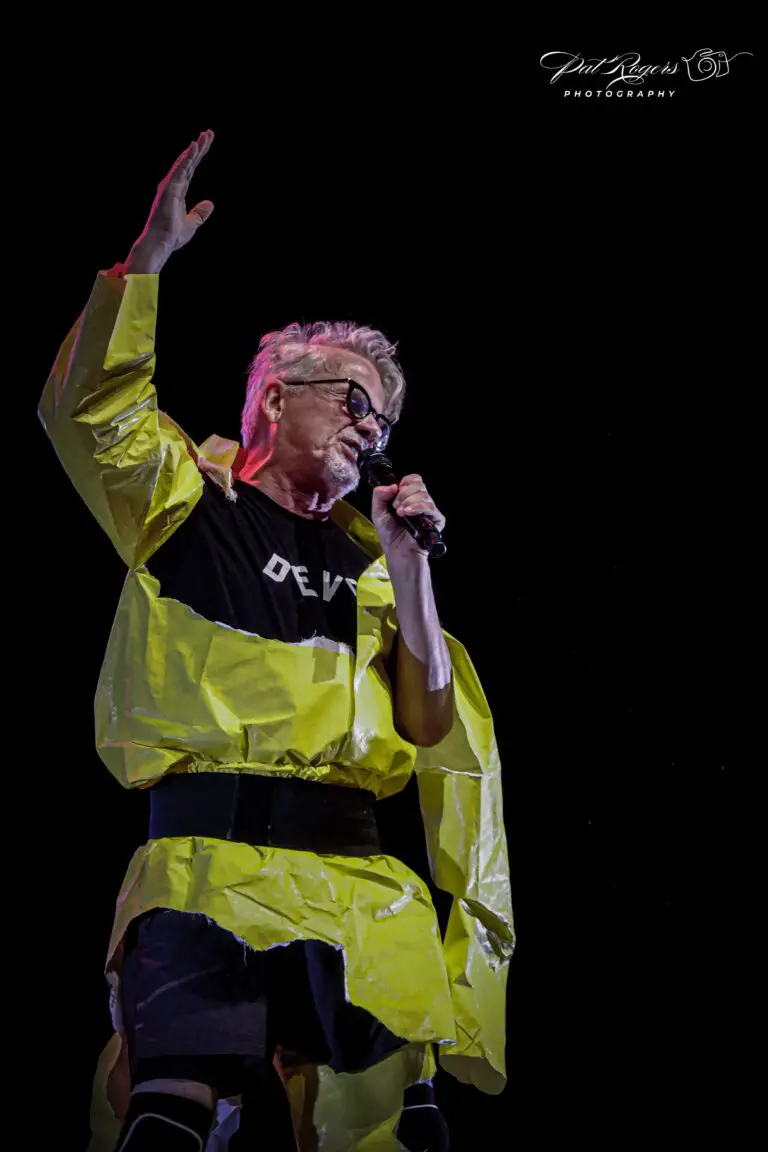


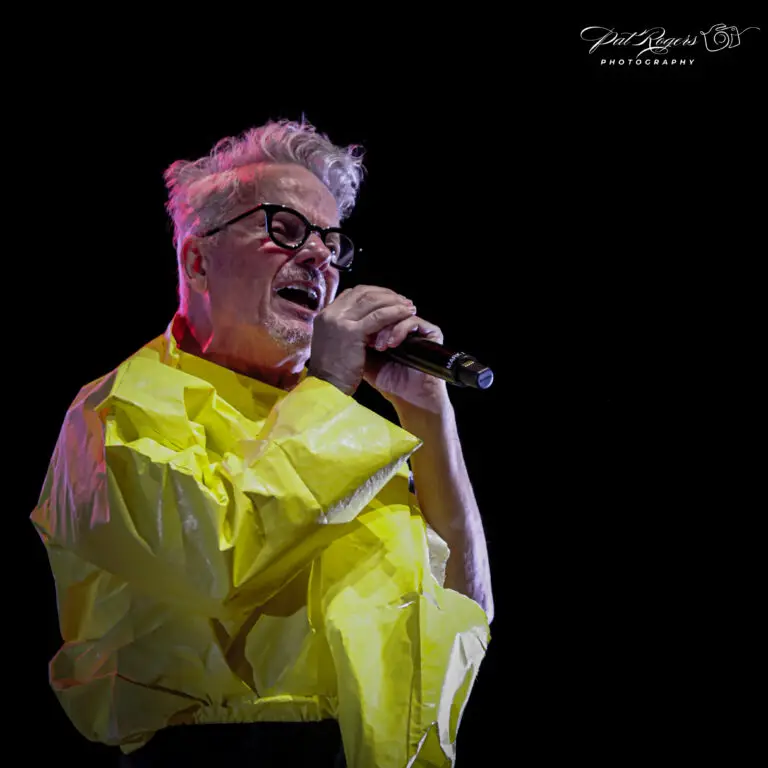
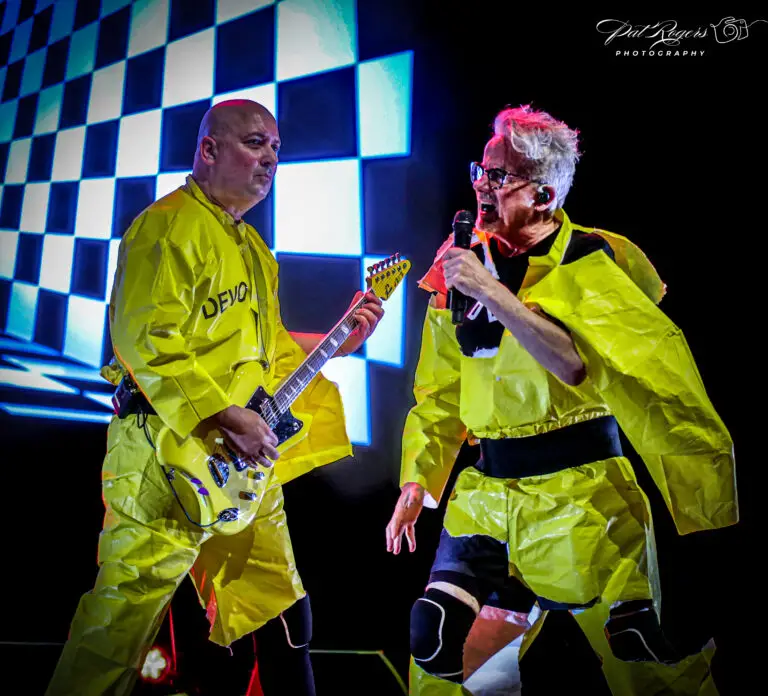
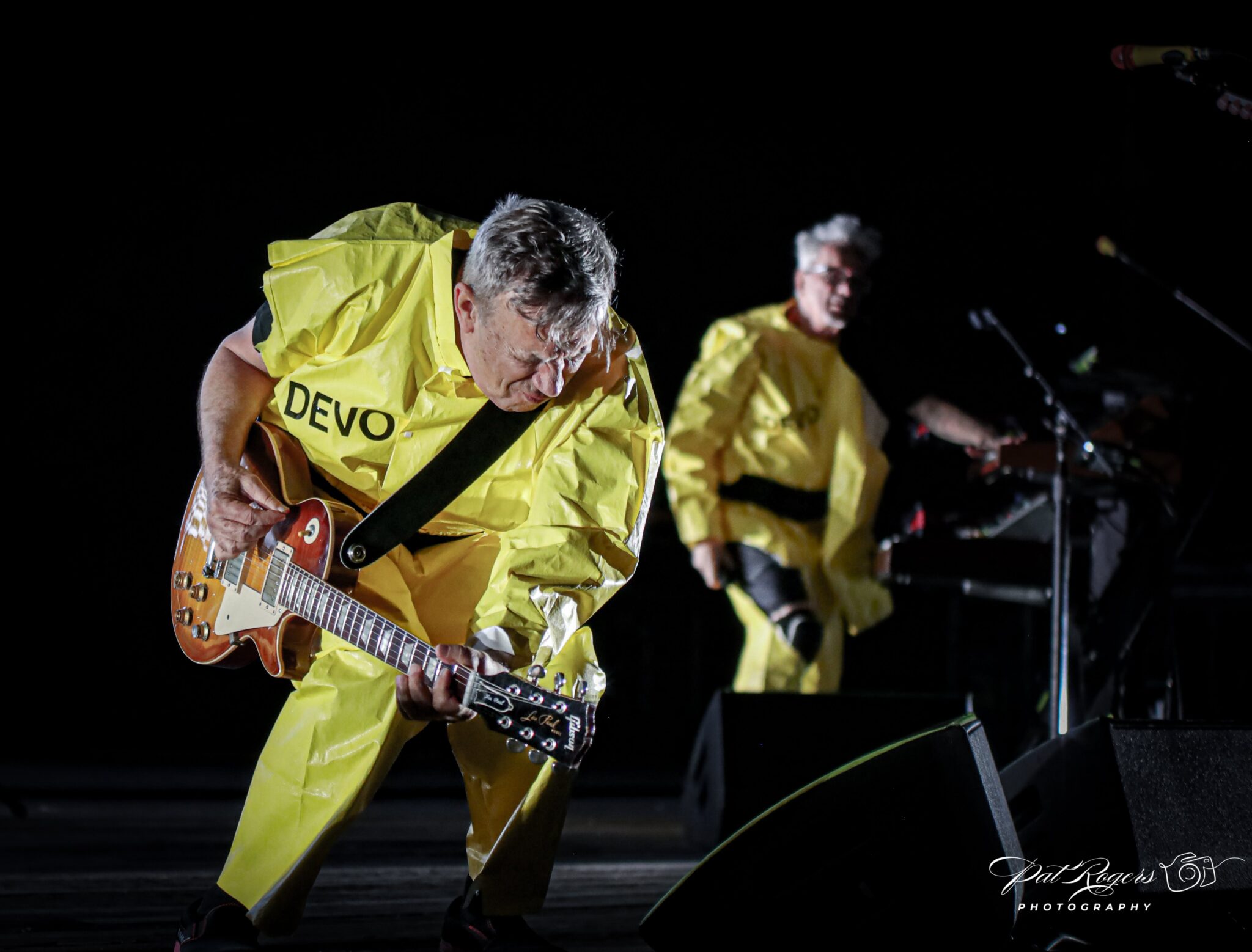
→ Continue reading at NYS Music
